Rob Bignell's Blog, page 378
March 16, 2013
Five great quotations about writing
“We do 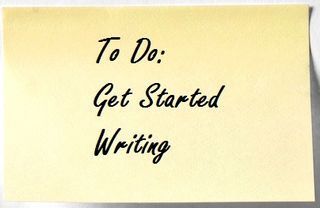 not write because we want to; we write because we have to.” – W. Somerset Maugham
not write because we want to; we write because we have to.” – W. Somerset Maugham
“If my doctor told me I had only six minutes to live, I wouldn't brood. I'd type a little faster.” – Isaac Asimov
“You can approach the act of writing with nervousness, excitement, hopefulness, or even despair, the sense that you can never completely put on the page what’s in your mind and heart. You can come to the act with your fists clenched and your eyes narrowed, ready to kick ass and take down names. You can come to it because you want a girl to marry you or because you want to change the world. Come to it any way but lightly. Let me say it again: you must not come lightly to the blank page.” –– Stephen King, “On Writing: A Memoir of the Craft”
“I love writing. I love the swirl and swing of words as they tangle with human emotions.” – James Michener
“Ink on paper is as beautiful to me as flowers on the mountains; God composes, why shouldn't we?” – Terri Guillemets
Need an editor? Having your book, business document or academic paper proofread or edited before submitting it can prove invaluable. In an economic climate where you face heavy competition, your writing needs a second eye to give you the edge. I can provide that second eye.
Related articles
 Five Great Quotations for Aspiring Writers
Five Great Quotations for Aspiring Writers Five great quotations about writing style
Five great quotations about writing style Five great quotations about novel writing
Five great quotations about novel writing
March 15, 2013
Tweet your book to popularity
One of the best ways to connect with readers who might be interested in reading your book is through Twitter. The idea of Twitter is to send out brief 140-character messages, known as “tweets,” to all who become your “followers.”
the best ways to connect with readers who might be interested in reading your book is through Twitter. The idea of Twitter is to send out brief 140-character messages, known as “tweets,” to all who become your “followers.”
The first step is setting up a Twitter site. That’s easy enough to do, but you’ll then have to decide the site’s name, the picture or avatar that accompanies you tweets, and what your background looks like.
You want to keep the Twitter site’s name as close as possible to your website’s name, though that’s not always possible as your book’s title may be too long to fit into a Twitter name; if so, abbreviate and come as close as can. There’s a spot under your site’s name where you can explain that visitors are at the official Twitter site for your book.
The avatar should be of the book’s cover. If you’ve written several books in a series, you might use the series’ logo (if you have one) or a picture of yourself.
The background can be plain, but if you’ve got a clever idea that will help make your page look more attractive, go for it. Just make sure the colors in your background work well with your book cover.
The next challenge is to start tweeting. You can tweet the exact some topics that you might write a blog about, such as upcoming book signings/readings, when the book appears in newspaper or magazine articles, expert tips/advice you might give, and so on. Because of the similarities, I simply tweet my daily blog entry when promoting my boooks. The blog entry’s title and URL appear in each tweet. For example, the blog entry “How to avoid and treat altitude sickness” would be tweeted as:
How to avoid and treat altitude sickness: http://hikeswithtykes.blogspot.com/20...
You also might retweet other entries that would be interesting to your readers. A retweet is tweeting a tweet that someone else already has tweeted (confused yet?). For example, if you’re a science fiction author specializing in space opera, and astronomers discover a new exoplanet, you might retweet an article about it that you saw on your favorite news website. Be careful of retweeting competitor’s work, though. Remember, you’re using Twitter to sell your book, not theirs.
The best time to tweet, according to studies, is between 9 a.m. and 10 a.m. Pacific Time. That’s when the largest percentage of Twitter users are online. Since Twitter users go to the site at different times of the day and often are inundated with tweets, there’s nothing wrong with retweeting your original tweet at another time. More than one tweet per hour, however, probably is overdoing it.
Finally, your tweets will simply end up in Twitter oblivion if you don’t tackle the next challenge with gusto: Finding followers. All followers receive your tweet. Begin finding followers by stating on your blog and other social media efforts that you have a Twitter site. Then, start following other people who tweet, especially those with topics and interests similar to your own. To find followers for my hiking site, I daily type “hiking kids” and “hiking children” into the Twitter site’s search engine. When other tweets with those words pop up, I follow the person who tweeted it. Ultimately, a few of those you follow will in appreciation follow you. Your tweets then will appear on their Twitter page – and in that way those who follow your followers will be introduced to your book.
Need an editor? Having your book, business document or academic paper proofread or edited before submitting it can prove invaluable. In an economic climate where you face heavy competition, your writing needs a second eye to give you the edge. I can provide that second eye.
Related articles
 Promote book with Goodreads author's page
Promote book with Goodreads author's page Why you want reviews written about your book
Why you want reviews written about your book
March 14, 2013
Computer requirements for self-publishing
We’ve
previously 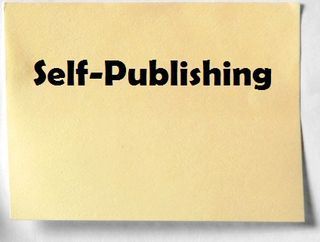 noted that to self-publish you’ll need a computer with an Internet connection. But that’s sort of like saying you need a car to move across the country. True enough, a car alone will get you there, but what if want to haul three bedrooms worth of furniture with you? A car then isn’t sufficient to the task.
noted that to self-publish you’ll need a computer with an Internet connection. But that’s sort of like saying you need a car to move across the country. True enough, a car alone will get you there, but what if want to haul three bedrooms worth of furniture with you? A car then isn’t sufficient to the task.
For hardware requirements, virtually any laptop or desktop made during the past four or five years will be adequate. Mac or PC is irrelevant. The more of the self-publishing process you wish to do on your own, though, the more memory you’ll need to run the software on your computer. As for an Internet connection, a high-speed connection is best. Old-style dial ups will work, but you run the risk of crashing and having to resend files, which can be a real headache.
For software, you should ensure that you have a program for:
n Word processing – This allows you to type, edit and store your manuscript. Microsoft Word (available in Microsoft Office packages) is most commonly used.
n Manipulating photographs – Most computers come with some photo-oriented program, but you’ll probably need something more than what usually is on a Windows system. Adobe Photoshop is most widely used; the program can be expensive, though, so if you know of somebody who already has it, see if they will help you out by doing a little work for you. You also can use it free on a tiral basis, usually for 14-30 days.
n Making pdfs – This may not be necessary depending on the self-publishing house you go with, but odds are that you’ll need it. Typically your Word manuscript, cover designs and photos must be uploaded as pdfs. Adobe Acrobat, which is standard on Windows, allows you to see and manipulate pdfs.
n Designing books – As with Adobe Acrobat, you won’t need a design program unless you plan to create picture books or a series of books. Microsoft Word can be used to format (placing text within margins and adding page numbers) simple, text-heavy books, such as novels. Microsoft Word, however, is an extremely difficult and frustrating program in which to format, and unless you’re willing to put in the time, your book will look amateurish. Adobe InDesign is the prevailing design program.
Of course, obtaining each of these programs requires that you gain some proficiency in using them. Believe it or not, you’re probably already familiar enough with Word and Adobe Acrobat to use them for self-publishing. Photoshop will require a small learning curve, and InDesign can take a few days to learn just the rudiments of. On the plus side, if you own and know how to use each of these programs, you could begin an independent business formatting self-published books for writers!
Alternatively, you can pay others – either freelance contractors or the self-publishing house itself – to handle the formatting of this for you so that all you need is Word. If you plan to publish just one book, this probably is the more cost-effective option. If you plan to publish several books, seriously consider investing in the above software or their equivalents.
Need an editor? Having your book, business document or academic paper proofread or edited before submitting it can prove invaluable. In an economic climate where you face heavy competition, your writing needs a second eye to give you the edge. I can provide that second eye.
Related articles
 Do you need extra services a P.O.D. house offers?
Do you need extra services a P.O.D. house offers? Always review proof your book before okaying it
Always review proof your book before okaying it
March 13, 2013
Sound writing advice on advisor vs. adviser
Frequently  my writing clients ask me which form of these words is correct. The good news is they may use either “advisor” or “adviser” … they’re synonyms that both mean “to counsel.” I must admit, though, that I was taught to use “adviser” by both my high school English teachers and my college journalism instructors, but apparently none of them ever attended Purdue University (or a handful of other institutions of higher learning) where “advisor” is the official spelling in job titles and “advisor” appears as the official spelling in their guidebooks. Regardless of which version you use, the best advice is to be consistent and stick to only one spelling throughout your piece.
my writing clients ask me which form of these words is correct. The good news is they may use either “advisor” or “adviser” … they’re synonyms that both mean “to counsel.” I must admit, though, that I was taught to use “adviser” by both my high school English teachers and my college journalism instructors, but apparently none of them ever attended Purdue University (or a handful of other institutions of higher learning) where “advisor” is the official spelling in job titles and “advisor” appears as the official spelling in their guidebooks. Regardless of which version you use, the best advice is to be consistent and stick to only one spelling throughout your piece.
Need an editor? Having your book, business document or academic paper proofread or edited before submitting it can prove invaluable. In an economic climate where you face heavy competition, your writing needs a second eye to give you the edge. I can provide that second eye.
Related articles
 Improve writing's texture by avoiding repetition
Improve writing's texture by avoiding repetition
March 12, 2013
'Show, don’t tell' when writing fiction
Perhaps the most common mistake among novice writers is that tell rather show.
the most common mistake among novice writers is that tell rather show.
To “tell” what happens is to state it directly, as might occur in a newspaper article. For example:
Lambert was excited to see another boot print.
To “show” what happens, however, is to present the events without being told directly how one feels or reacts. The above example of “telling” could be rewritten to show Lambert’s excitement:
“There’s another one!” Lambert said, pointing at the boot print.
The “show” example is far more dynamic writing. It helps create for the reader a sense of illusion that he is in the story, observing and even participating in the action. This helps generate dynamic tension and causes the reader to invest more in the character.
As a fiction writer, you’ll want virtually all of your sentences to show rather than tell. There a few instances when the author needs to “tell” – such as quickly providing a back story or to make dialogue sound realistic – but such occurrences should be rare.
As writing, look for words such as “was” “were” “is” “be” and “being”. These words usually indicate you’re telling rather than showing. Also, watch for nouns that are emotions, such as “angry”, “sad”, “happy”. Such words usually mean you’re telling rather showing. Rewrite those sentences so that you’re describing the action.
Showing rather than telling can be hard work for writers. Finding just the right words to describe how someone is excited or angry requires more thinking about the scene. But it’s well worth the slowdown and the sweat. You’ll have a much better story – and one that’s much more publishable as well.
Need an editor? Having your book, business document or academic paper proofread or edited before submitting it can prove invaluable. In an economic climate where you face heavy competition, your writing needs a second eye to give you the edge. I can provide that second eye.
Related articles
 Avoid exposition (Show, don't tell!)
Avoid exposition (Show, don't tell!) How to make your writing show rather than tell
How to make your writing show rather than tell
March 11, 2013
Hawaiian editing clients release first book
Two editing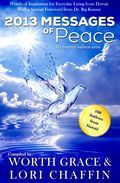 clients of mine from Hawaii released their first book this past weekend. “Messages of Peace”, compiled by Worth Grace and Lori Chaffin, is an intimate collection of wishes, prayers and stories from Hawaiians who write to humanity from their homes on the islands. The book includes heartfelt words from a variety of different backgrounds, spanning in age from eight to 75. Their messages express the simple sincerity of Aloha and the love so many across the world currently seek. “Messages of Peace” is available for purchase online.
clients of mine from Hawaii released their first book this past weekend. “Messages of Peace”, compiled by Worth Grace and Lori Chaffin, is an intimate collection of wishes, prayers and stories from Hawaiians who write to humanity from their homes on the islands. The book includes heartfelt words from a variety of different backgrounds, spanning in age from eight to 75. Their messages express the simple sincerity of Aloha and the love so many across the world currently seek. “Messages of Peace” is available for purchase online.
Need an editor? Having your book, business document or academic paper proofread or edited before submitting it can prove invaluable. In an economic climate where you face heavy competition, your writing needs a second eye to give you the edge. I can provide that second eye.
Related articles
 Editing client publishes his first YA fantasy novel
Editing client publishes his first YA fantasy novel Editing client publishes her first fantasy novel
Editing client publishes her first fantasy novel '7 Minutes a Day' now available in paperback!
'7 Minutes a Day' now available in paperback! Editing client releases first in fantasy series
Editing client releases first in fantasy series Editing client releases sequel to thriller
Editing client releases sequel to thriller
March 10, 2013
The ‘thinking step’ when writing your book
If you’re  putting your pen to paper or fingers to keyboard for the first time on a story, you really aren’t starting at all. You probably “started” writing the piece some time before – in your head.
putting your pen to paper or fingers to keyboard for the first time on a story, you really aren’t starting at all. You probably “started” writing the piece some time before – in your head.
That “thinking step” is known in the writing process as brainstorming. It is where you come up with the idea for the story; it is that first mad scribble of notes about your characters, their conflicts, the setting the story will occur, a catchy title and more.
There is no magical answer for making the muse bless you with inspiration. It varies greatly, even for authors in the same genre. Some writers only can create when stress free. Others need to be in a tumultuous environment. Some need to delve into good books, examine great art, and listen to fine music. Others need a blank, almost sterile room so their mind can focus.
Regardless, once inspiration does strike, you’re ready to brainstorm. In fact, you’ll probably just do it naturally (and usually when there’s no pen or paper handy!)
The biggest challenge facing you when brainstorming is to prevent your self-doubts from hindering your creativity.
Don’t tell yourself it’s a lousy story idea. It may indeed be lousy, but by allowing yourself to explore the possibilities, you may come upon an idea that’s pretty darn good. Be curious not critical. Criticism comes later when you start outlining your work (which is the next step in the writing process) through the revising of it.
In addition to generating your idea, brainstorming can involve collection of information to help you formulate your story idea. If it involves a historical romance set in the beginning of the Roman Empire, you may want to read about the time of Caesar and Augustus. This likely will spur further ideas about your book, perhaps even whole scenes.
In many ways, the brainstorming portion of the writing process is the most fun. It’s a time when you let your mind dream freely and your visions soar, leaving practical questions like “Who is my reader?” (which could alter the plotting and style of your book) for later stages.
Need an editor? Having your book, business document or academic paper proofread or edited before submitting it can prove invaluable. In an economic climate where you face heavy competition, your writing needs a second eye to give you the edge. I can provide that second eye.
Related articles
 Five quotations about writing as self-discovery
Five quotations about writing as self-discovery '7 Minutes a Day' now available in paperback!
'7 Minutes a Day' now available in paperback!
March 9, 2013
Five quotations about writing as self-discovery
“I never
feel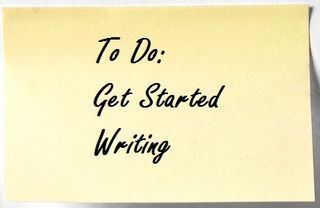 that I have comprehended an emotion, or fully lived even the smallest events, until I have reflected upon it in my journal; my pen is my truest confidant, holding in check the passions and disappointments that I dare not share even with my beloved.” – Stephanie Barron, “Jane and the Unpleasantness at Scargrave Manor”
that I have comprehended an emotion, or fully lived even the smallest events, until I have reflected upon it in my journal; my pen is my truest confidant, holding in check the passions and disappointments that I dare not share even with my beloved.” – Stephanie Barron, “Jane and the Unpleasantness at Scargrave Manor”
“When you write things down, they sometimes take you places you hadn’t planned.” – Melanie Benjamin, “Alice I Have Been”
“It is not a bad idea to get in the habit of writing down one’s thoughts. It saves one having to bother anyone else with them.” – Isabel Colegate
“Learn as much by writing as by reading.” – Lord Acton
“I write entirely to find out what I’m thinking, what I’m looking at, what I see and what it means. What I want and what I fear.” – Joan Didion
Need an editor? Having your book, business document or academic paper proofread or edited before submitting it can prove invaluable. In an economic climate where you face heavy competition, your writing needs a second eye to give you the edge. I can provide that second eye.
Related articles
 Five Great Quotations for Aspiring Writers
Five Great Quotations for Aspiring Writers How to make your writing show rather than tell
How to make your writing show rather than tell Five Great Quotations about the Business of Writing
Five Great Quotations about the Business of Writing
March 8, 2013
How often should you blog to promote your book?
How frequently you’ll blog largely depends on your time constraints and your readers’ thirst for information from and about you. More than once a day is too much, but you probably want to have an entry every 2-3 days and certainly no less than once a week if you’re to maintain readership.
frequently you’ll blog largely depends on your time constraints and your readers’ thirst for information from and about you. More than once a day is too much, but you probably want to have an entry every 2-3 days and certainly no less than once a week if you’re to maintain readership.
Of course, blogging will cut into your writing time, so you want to limit the length of your blogs. That’s a good idea anyway, as most online readers aren’t interested in reading particularly long entries. Between 30 and 1,250 words is good for a good a blog entry. This entry is 212 words long.
To keep blogs from diminishing your book writing time, you may want to try penning blog entries that can be used in future tomes; this is particularly useful if you’re writing nonfiction. Though my focus is on a single book, via my blog I’m actually writing five or six other books as I change up the topic matter each day. Since blogs typically allow you to see how many people are reading each entry, you can quickly get a good sense of what topics are of the most interest to readers and so refocus your efforts on the book ideas that will have the most appeal.
Need an editor? Having your book, business document or academic paper proofread or edited before submitting it can prove invaluable. In an economic climate where you face heavy competition, your writing needs a second eye to give you the edge. I can provide that second eye.
Related articles
 Why you want reviews written about your book
Why you want reviews written about your book Promote book with Goodreads author's page
Promote book with Goodreads author's page
March 7, 2013
Consider adding artwork to interior of your book
Especially 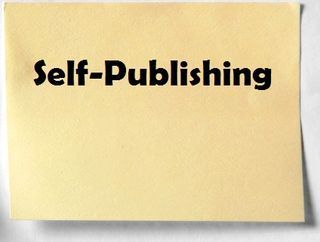 if writing nonfiction, you’ll likely want to include artwork inside your book. Such artwork will help better illustrate your points (pun intended). Novelists, as well, might wish to use artwork such as illustrations if creating books for teens or young adults.
if writing nonfiction, you’ll likely want to include artwork inside your book. Such artwork will help better illustrate your points (pun intended). Novelists, as well, might wish to use artwork such as illustrations if creating books for teens or young adults.
There are several different types of artwork that could be used in a book:
n
Photographs – Pictures taken by a camera can be useful in presenting real-life examples of what is discussed in the text.
n
Illustrations – Sometimes photographs don’t work well, such as showing a picture of a heart when a drawing pointing out the organ’s parts would better serve readers.
n
Technical drawings – These include standard graphs, tables and charts to help readers visualize data.
n
Infographics – Rather than being straight charts, these “factoids” combine simple, easy-to-read text with a photo or illustration.
Art should appear with text known as captions (In the newspaper and magazine business, they often are called cutlines.). Captions shouldn’t state the obvious, such as what any reader can plainly see is in the picture, but instead should add more information to the picture by elaborating on it. For example, if the picture were of a monkey in a zoo exhibit, don’t write “monkey in a zoo exhibit” but instead build upon the photo, such as “Today’s zoo exhibits try to mimic the natural environment of the kept animal.”
When including captions in your book, use a different typeface and point size from your main text so that they stand apart. Often boldface or a font thinner than the main text is used. Sometimes captions are a dark gray to help distinguish them from the main text. When deciding how your captions will appear, look at how a variety of books approach them and decide which works best for your purposes.
Unless you’re an artist or have experience with design, you’ll probably want to contract someone to make these various pieces of artwork for you. While simple tables can be made in Microsoft Word, creating any of the others can be time consuming and downright frustrating for the uninitiated. To a little lesser degree, the same goes with photographs. You probably have experience taking photographs but if lacking the technical expertise to manipulate them to improve such features as their coloring, brightness or contrast, you run the risk of having poorly framed shots and photos that are too dark or too washed out once they’re printed.
Need an editor? Having your book, business document or academic paper proofread or edited before submitting it can prove invaluable. In an economic climate where you face heavy competition, your writing needs a second eye to give you the edge. I can provide that second eye.
Related articles
 Guidelines for designing your book cover's spine
Guidelines for designing your book cover's spine Write a winning blurb for your book's back cover
Write a winning blurb for your book's back cover



